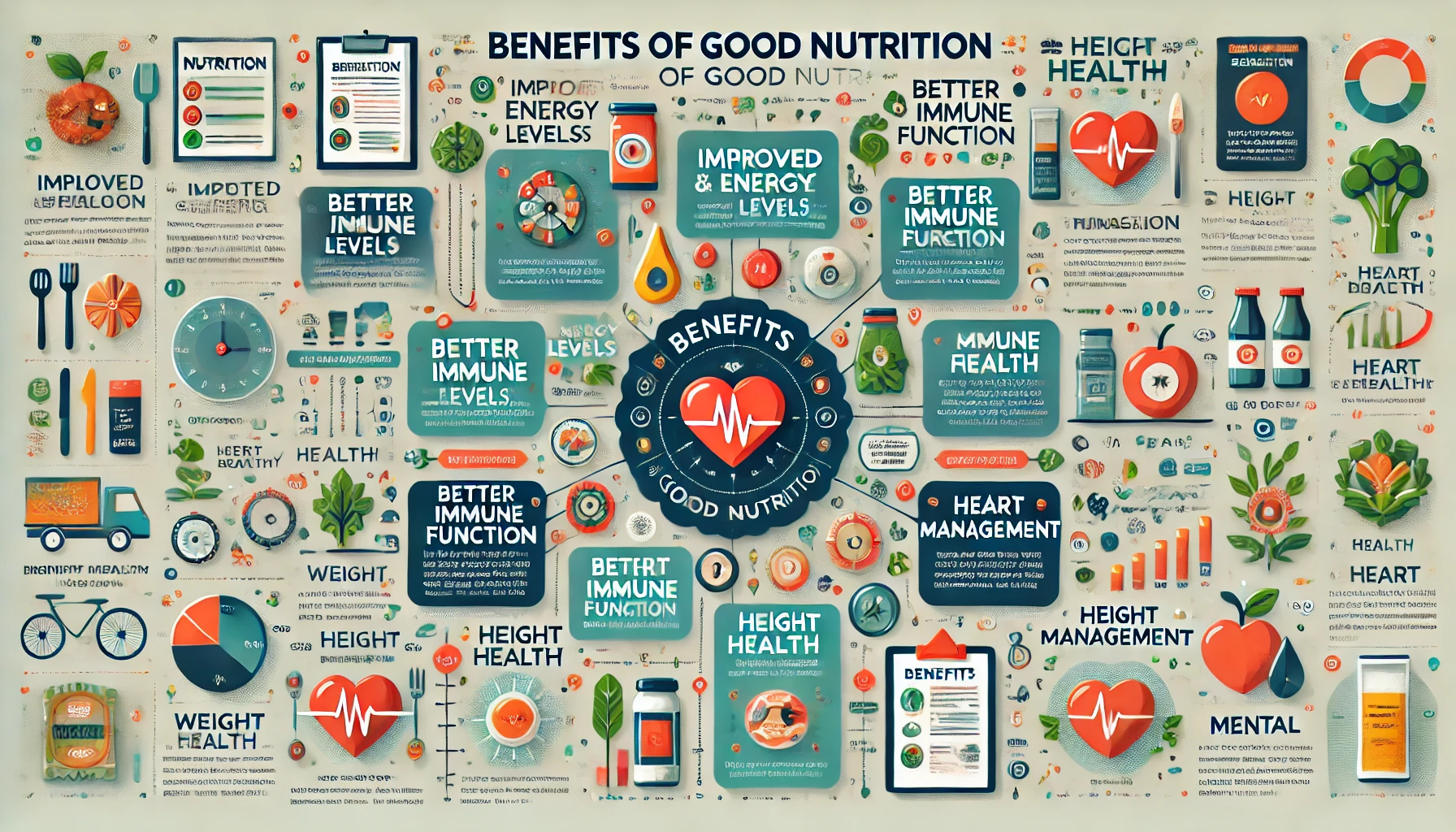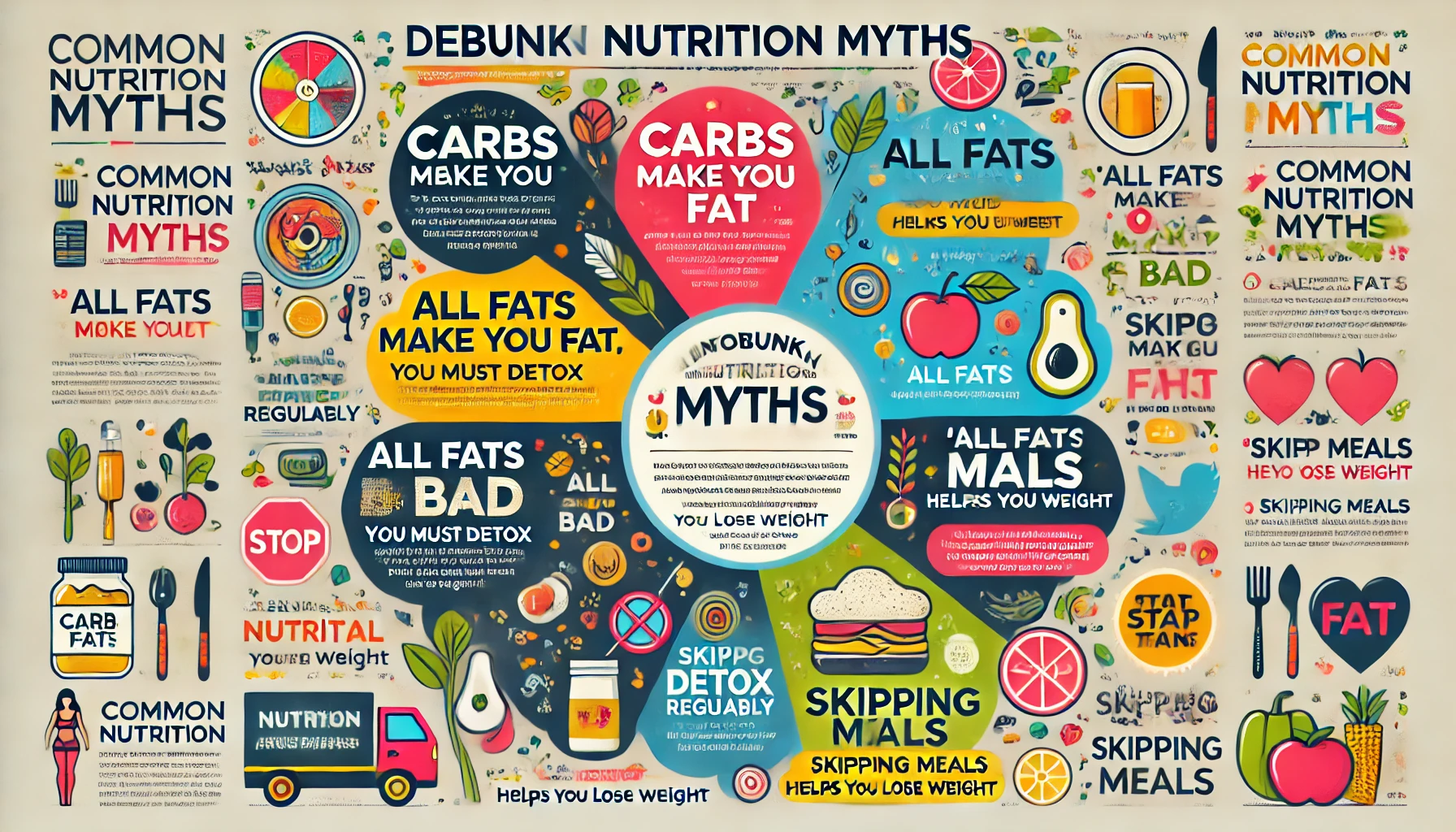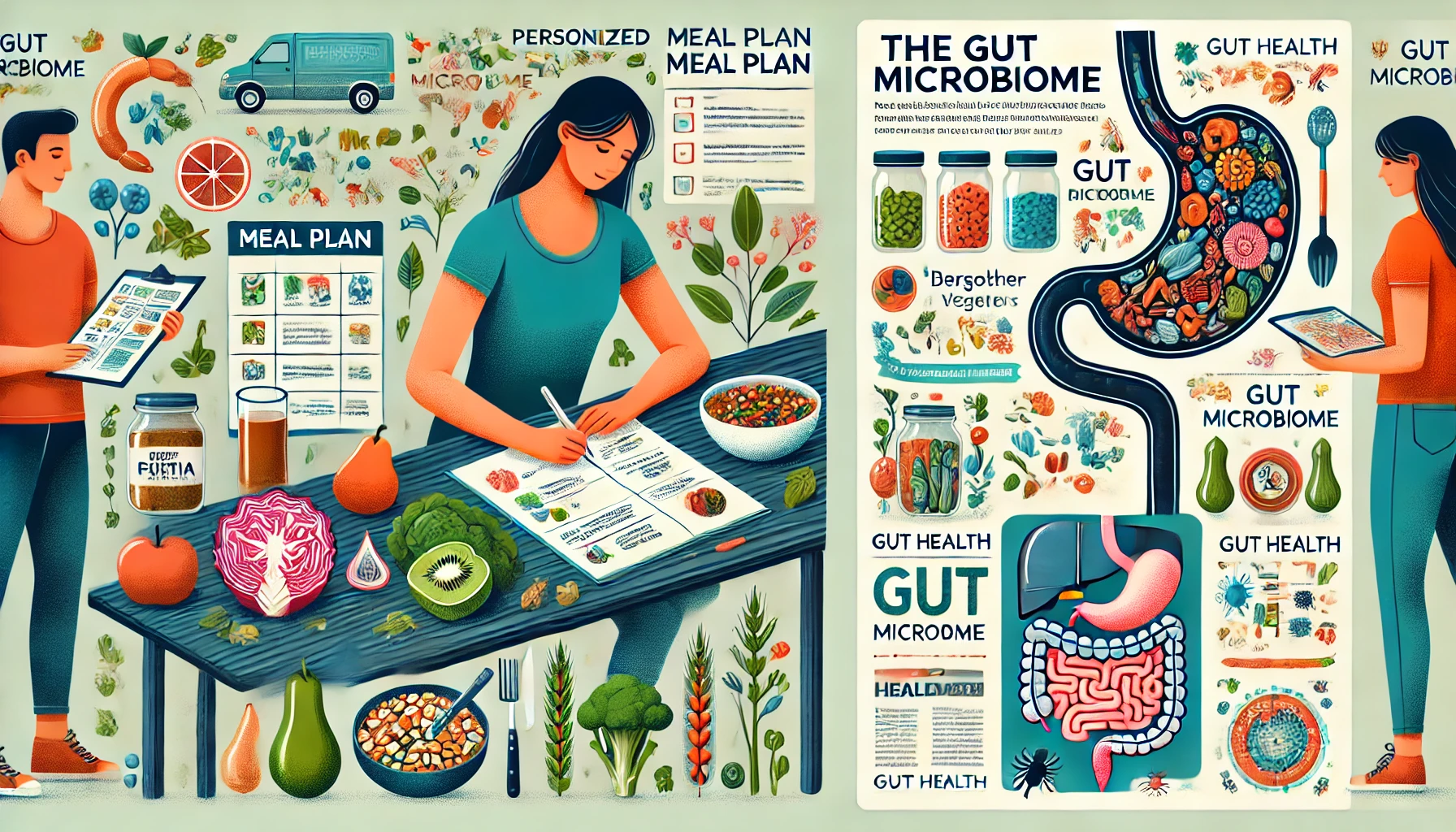Nutrition: Healthy Eating for Better Health
Dr. Jane Doe
15 Sep 2024 • 10 min read
Introduction to Nutrition
Nutrition is the process by which our bodies take in and utilize food substances. It is the foundation of good health and well-being, providing the essential nutrients our bodies need to function correctly. Proper nutrition involves eating a balanced diet that supplies the necessary vitamins, minerals, protein, fats, and carbohydrates to maintain energy levels, support bodily functions, and prevent chronic diseases.

Importance of Nutrition
Good nutrition is vital for overall health. It helps to:
- Maintain a healthy weight
- Reduce the risk of chronic diseases such as heart disease, diabetes, and cancer
- Promote healthy growth and development in children and adolescents
- Support immune function
- Improve mood and mental health
- Enhance energy levels and physical performance

Essential Nutrients
Nutrients are substances that our bodies need to function correctly. They can be divided into macronutrients and micronutrients.
Macronutrients
- Carbohydrates: The body’s primary source of energy. Found in foods like bread, rice, pasta, fruits, and vegetables.
- Proteins: Essential for building and repairing tissues, found in meat, poultry, fish, dairy, legumes, and nuts.
- Fats: Provide energy and support cell function. Focus on healthy fats like those in nuts, seeds, and avocados.

Micronutrients
- Vitamins: Organic compounds crucial for body functions, including Vitamin A, C, D, and B vitamins.
- Minerals: Inorganic elements like calcium, iron, potassium, and magnesium that support various body processes.

Building a Balanced Diet
A balanced diet includes a variety of foods in the right proportions to meet your body’s nutritional needs. Here’s how to build a healthy, balanced diet:
- Fruits and Vegetables: Aim to fill half your plate with fruits and vegetables. They are rich in vitamins, minerals, fiber, and antioxidants.
- Whole Grains: Choose whole grains like brown rice, quinoa, oats, and whole wheat bread instead of refined grains. They provide more fiber and nutrients.
- Lean Proteins: Include lean sources of protein like poultry, fish, beans, and legumes. Incorporate plant-based proteins for variety.
- Healthy Fats: Incorporate sources of healthy fats, such as olive oil, nuts, seeds, and avocados. Limit saturated and trans fats.
- Dairy or Dairy Alternatives: Choose low-fat or fat-free dairy products, or fortified plant-based alternatives like almond or soy milk.

Special Diets
Different people have different nutritional needs based on their health conditions, lifestyle, and preferences. Here are some common special diets:
- Vegetarian and Vegan Diets: Focus on plant-based foods, excluding meat (vegetarian) or all animal products (vegan). Ensure adequate intake of protein, iron, calcium, and vitamin B12.
- Gluten-Free Diet: Eliminates gluten, a protein found in wheat, barley, and rye. Necessary for people with celiac disease or gluten sensitivity.
- Low-Carb Diet: Limits carbohydrate intake to promote weight loss or manage blood sugar levels. Focuses on proteins, healthy fats, and non-starchy vegetables.
- Mediterranean Diet: Emphasizes fruits, vegetables, whole grains, fish, and healthy fats, particularly olive oil. Known for heart health benefits.
- Ketogenic (Keto) Diet: A high-fat, low-carbohydrate diet that forces the body to burn fats rather than carbohydrates for energy. Used for weight loss and managing epilepsy.

Nutrition for Specific Populations
Nutritional needs vary throughout life and depending on individual health conditions. Here’s how nutrition can be tailored to specific populations:
- Children and Adolescents: Focus on foods that support growth and development. Ensure adequate intake of calcium, vitamin D, iron, and protein.
- Pregnant and Breastfeeding Women: Nutritional needs increase during pregnancy and breastfeeding. Important nutrients include folic acid, iron, calcium, and omega-3 fatty acids.
- Older Adults: Nutritional needs change with age. Focus on nutrient-dense foods to meet energy needs, and ensure adequate intake of vitamin D, calcium, fiber, and protein.
- Athletes and Active Individuals: Higher energy and protein needs to support physical activity. Hydration and nutrient timing (when to eat) are also important.
- People with Chronic Conditions: Diets may need to be adjusted to manage conditions like diabetes, heart disease, and high blood pressure. For example, a low-sodium diet may be recommended for hypertension.

Common Nutrition Myths and Facts
There are many misconceptions about nutrition that can lead to unhealthy choices. Here are some common myths and the facts that debunk them:
- Myth: Carbs are bad for you.
Fact: Not all carbs are created equal. Whole grains, fruits, and vegetables are healthy sources of carbohydrates, while refined carbs and sugars should be limited. - Myth: Fats make you fat.
Fact: Healthy fats are an essential part of a balanced diet. The key is to choose unsaturated fats and limit saturated and trans fats. - Myth: You need to detox your body regularly.
Fact: Your body naturally detoxifies itself through the liver, kidneys, and digestive system. A balanced diet and hydration are all you need. - Myth: Skipping meals helps you lose weight.
Fact: Skipping meals can lead to overeating later and may slow down metabolism. Eating balanced meals throughout the day supports healthy weight management. - Myth: Supplements can replace a healthy diet.
Fact: Supplements can help fill nutritional gaps, but they cannot replace the variety of nutrients found in whole foods.

Advances in Nutrition Science
Nutrition science is continuously evolving, with new research providing insights into how diet affects health. Some recent advancements include:
- Personalized Nutrition: Tailoring dietary recommendations based on genetic, metabolic, and microbiome profiles.
- The Role of Gut Health: Understanding how the gut microbiome influences overall health and how diet can impact gut health.
- Plant-Based Nutrition: Increasing evidence of the health benefits of plant-based diets, including their role in reducing the risk of chronic diseases.
- Intermittent Fasting: Research into the benefits of intermittent fasting for weight management and metabolic health.
- Sustainable Eating: Exploring the impact of dietary choices on the environment and the importance of sustainable food systems.

Conclusion
Nutrition is a critical component of health and well-being. By understanding the essential nutrients your body needs and how to build a balanced diet, you can take proactive steps toward maintaining good health and preventing chronic diseases. Staying informed about nutrition and making mindful food choices can lead to a healthier, happier life.

Dr. Jane Doe
15 Sep 2024 • 10 min read